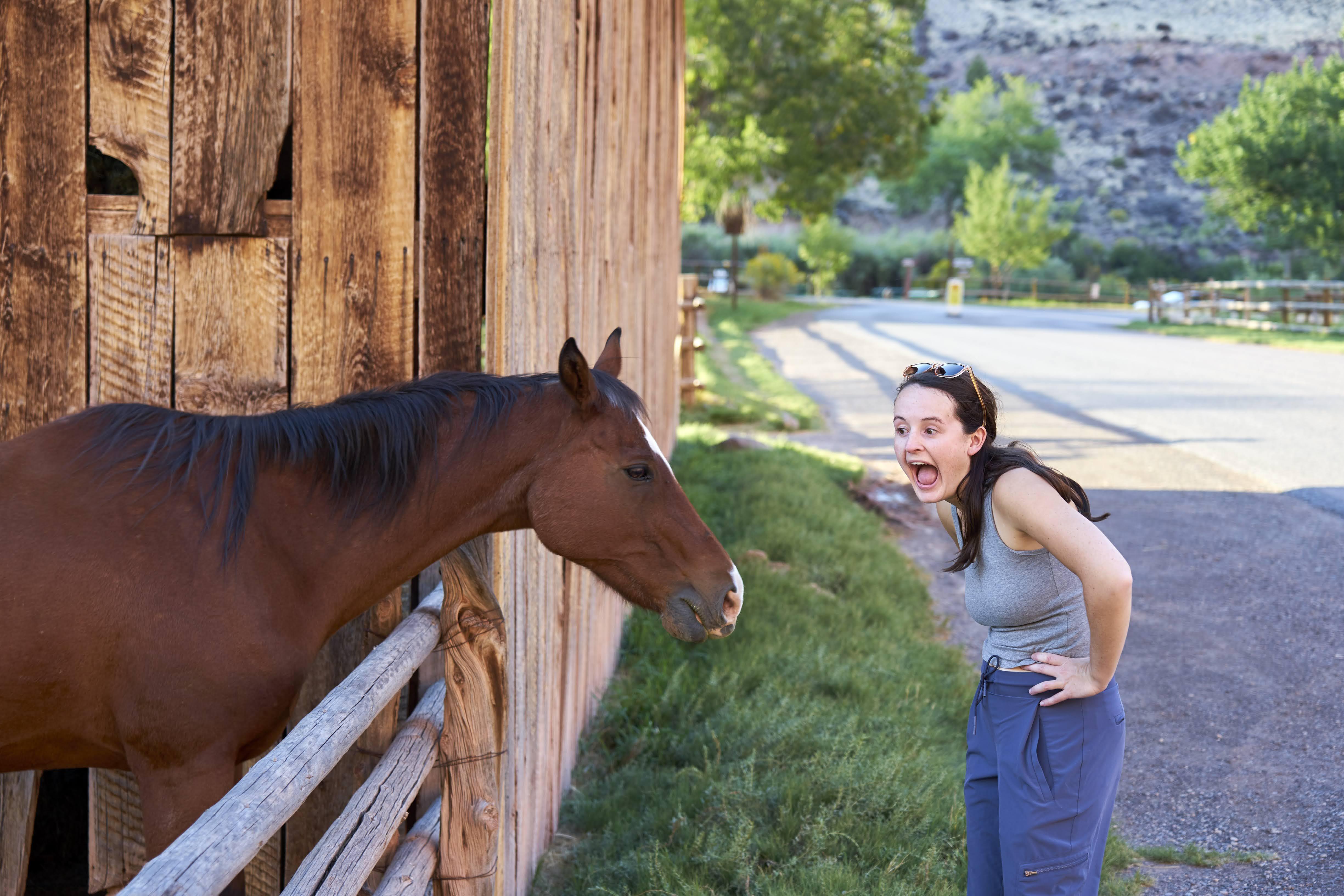This land managed by ... older people?
In the fall of 2022, my partner and I decided to take our first ‘extended vacation’ since beginning our working lives at MIT. We spent two weeks exploring Utah’s national parks. Weaving our way through a thousand miles of sandstone and hoodoos we drove and camped, catching sunsets and sunrises and glimpses of roadrunners, deer and bison. Each time we arrived at a new park, we would trudge our way over to the visitor’s center seeking a water bottle refill and a park ranger to help us.
Six-plus destinations later, I could not help but notice that at every park we visited, we would find ourselves parked alongside tour buses brimming with groups of older people. And in just about every campsite we stayed at, our neighbors a) generally had an RV and b) were inevitably closer to age 65 then 25.
I wasn’t totally hallucinating this age-related phenomenon. The average age of a visitor to Yellowstone National Park is 54; 57 for Denali. Meanwhile, the decline of youth visitors to U.S. national parks has become increasingly well-documented.
What makes it easier for older people to visit parks? U.S. citizens or permanent residents aged 62+ are eligible for a Senior Pass from the United States Geological Survey agency –a heavily discounted pass to access certain recreational sites, making trips to national parks more affordable and accessible for many older adults. And tourists who are retired might be better able to visit these sites during off-peak times such as during the fall season or weekdays.
In the wake of travel cratering during the height of the COVID-19 pandemic, the senior tourism market is booming. Early 2022 data from AARP suggests adults 50+ anticipate spending more on travel than they did before the pandemic; and travelers aged 50+ will outspend those aged 18-49 on travel by almost double. Dozens of adventure travel companies, like Road Scholar & Eldertreks, market principally towards the 50+ traveler (not to mention the 50+ solo traveler), as we saw across Utahn parks.
Research has begun exploring the positive benefits of tourism for older adult travelers, including social connection, physical and mental engagement, improved quality of life, and more.
And it’s not just visitors, but park employees who are on the older side. Most of the park rangers we spoke with were pursuing their ranger work as a ‘second act’ or as a seasonal post-retirement job. In our trip alone, we met rangers who had long careers as entrepreneurs and engineers, even someone who was an MIT alum. Many had found traditional retirement boring or unfulfilling and pursued their roles in the park service as an opportunity to try something new, get outside and leave behind a legacy.
The oldest active ranger in the park service – Betty Reid Soskin – just retired from the role at age 100 in 2022.
Older people are well-suited to be outdoor educators and curious visitors. To some extent, the national park system models how to successfully leverage the skills and talents of older people, as stewards of our country’s history and of our land, for meaningful work in later life.
But it could be doing better. As scholars have noted, while older adults are well-represented as visitors and employees at parks, as a group, they are overwhelmingly white. Leveraging an intersectional lens – considering how age, ability, racial and ethnic identity, and gender identity, interact with each other – when developing programming and thinking about accessibility could lead to greater inclusion of marginalized groups in our most beautiful places.

